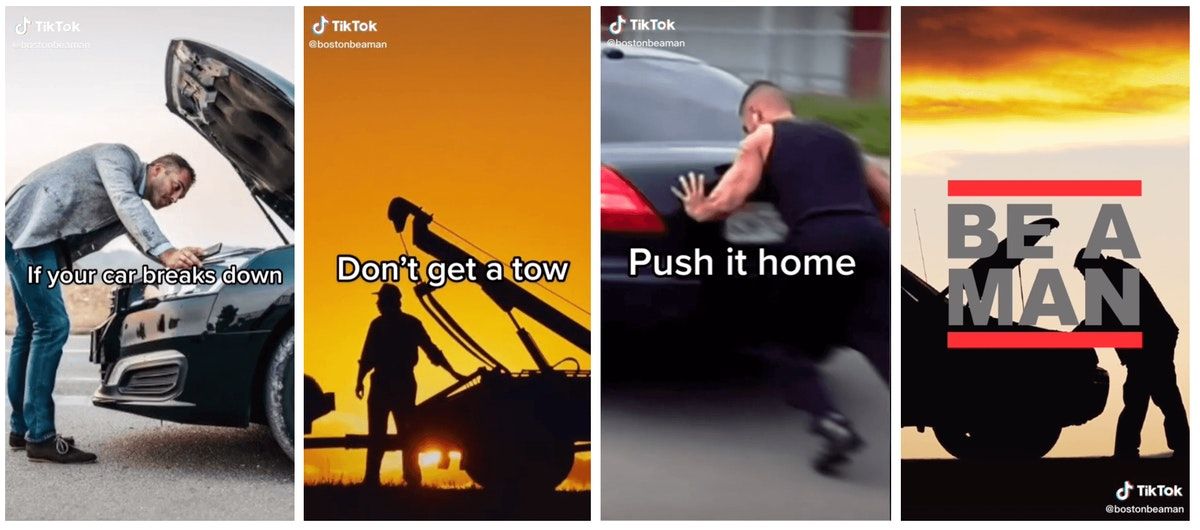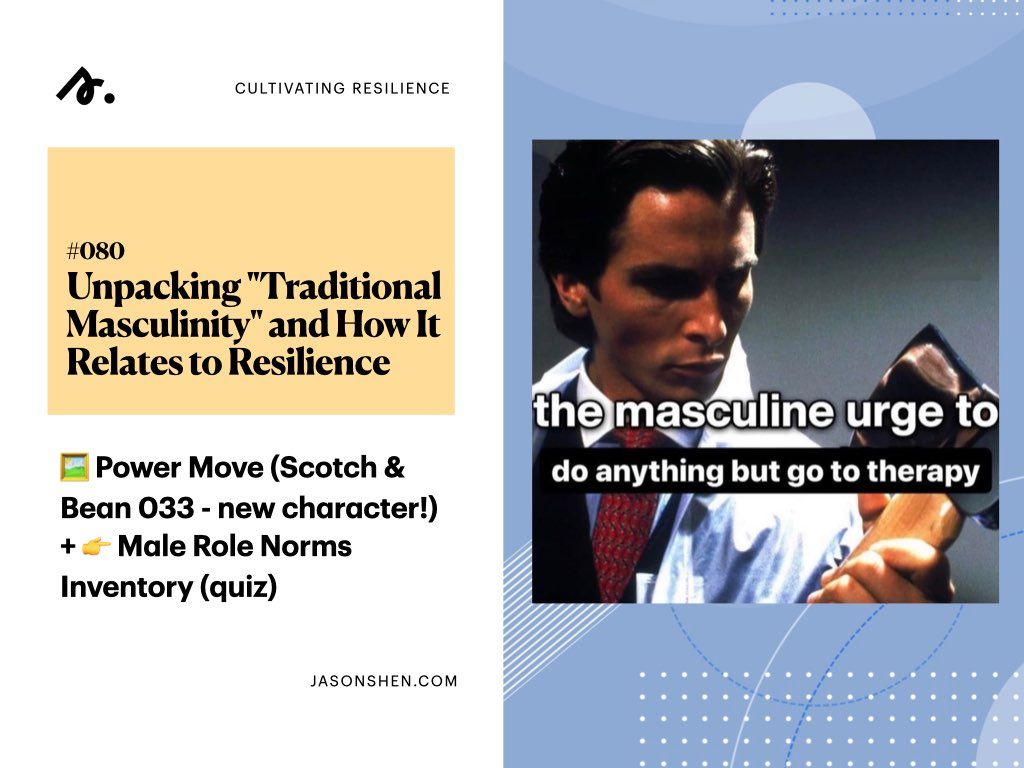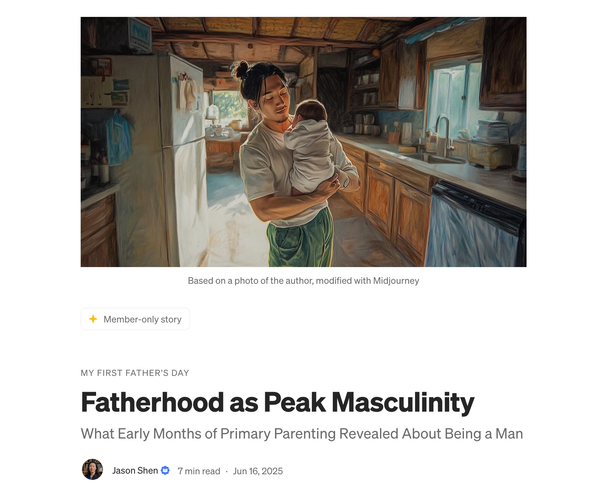As you know, I've been trying to capture some of the experiences of fatherhood. My daughter Ashton is now almost six months old and actually kinda jacked??
It's been incredibly rewarding and honestly (knock on wood) not as stressful as I thought to be a very involved parent. You could say I've been preparing for this for a long time, and you'd be right.
There was a lot about being a father that I anticipated—fractured sleep, diaper changes, soothing, feeding, singing, shushing.
But there was something else that stirred in me in my post-fatherhood life that I wanted to share. That about feeling like a man.
I've written in the past about "traditional masculinity": a set of values and beliefs that are largely detrimental to the holder (usually men) and those around them.
Masculinity ideology is a set of descriptive, prescriptive, and proscriptive of cognitions about boys and men (Levant & Richmond, 2007; Pleck, Sonenstein, & Ku, 1994). Although there are differences in masculinity ideologies, there is a particular constellation of standards that have held sway over large segments of the population, including: anti-femininity, achievement, eschewal of the appearance of weakness, and adventure, risk, and violence. These have been collectively referred to as traditional masculinity ideology (Levant & Richmond, 2007). [bolded parts mine]
The American Psychological Association's guidelines for working with boys and men.


Being an involved father seems to fall outside of that definition, especially when you consider the gendered idea of "mothering" and moms as traditional caregivers.
And even science seems to show it: the male dominant hormone testosterone declines in men who recently became fathers to young children, especially if they are involved in childcare.
But in this essay, first published on Medium, I turned that idea on its head and argue that actually being an involved parent feels highly masculine in the most positive sense of the word.
Here's an initial excerpt:
When the hospital nurses placed Ashton in my arms, my first two thoughts were:
“Thank God, she’s got a strong cry”
“Damn, she kinda looks like a naked mole rat.”
This was my introduction to fatherhood: gratitude and concern swirling together like cream poured into black coffee.
My daughter’s tiny body fit in one hand like a football, her neck wobbling with alarming instability. And once we pulled a beanie over her large sloping forehead, her delicate features became a lot more adorable.
These days, new fathers often help out more with nighttime feedings and diaper changes in the first days and weeks.
I had a more significant task ahead.
My wife and I had postponed parenthood in that distinctly millennial fashion, waiting for that magic moment of professional and financial readiness that never quite arrived. The biological clock eventually forced our hand and after two years of trying, Ashton arrived in late January 2025.
At 38, I had finally joined the Dad Club, that secret fraternity of sleep-deprived men whose membership dues are paid in milk-stained shirts and second servings of coffee.
The timing seemed fitting.
I had traded fourteen years of navigating high-stakes startups and big tech product management, to become an independent executive coach. Packed schedules and lucrative stock options made way for creative autonomy and volatile earnings.
Through a combination of circumstance and choice, I became Ashton’s main caregiver for her first 30 days of life. I told my clients I was going offline—sacrificing a month of income to bond with this strange new creature, made up of equal parts need and potential.
They say modern parents are the least prepared in human history. Just a few generations ago, families would have four, five or more kids under one roof. With cousins, close neighbors, and extended family around, it would have been normal to help with babies and toddlers as part of growing up—giving you real experience before having your own.
My much younger baby sister offered a potential opportunity for this kind of preparation, but between intensive gymnastics training and a rigorous course load of honors and AP classes, I rarely had time to help with her care. Instead, my fatherhood crash course consisted of audiobooks, YouTube videos, parenting influencers, and a class where I awkwardly changed and swaddled a plastic doll.
None of it truly captured the reality of that first day home, alone with a tiny human whose survival depended entirely on my competence.
Continue reading (1,177 words – 4:57 mins reading time)
(No Medium subscription? You should get one! But for now, click here)



